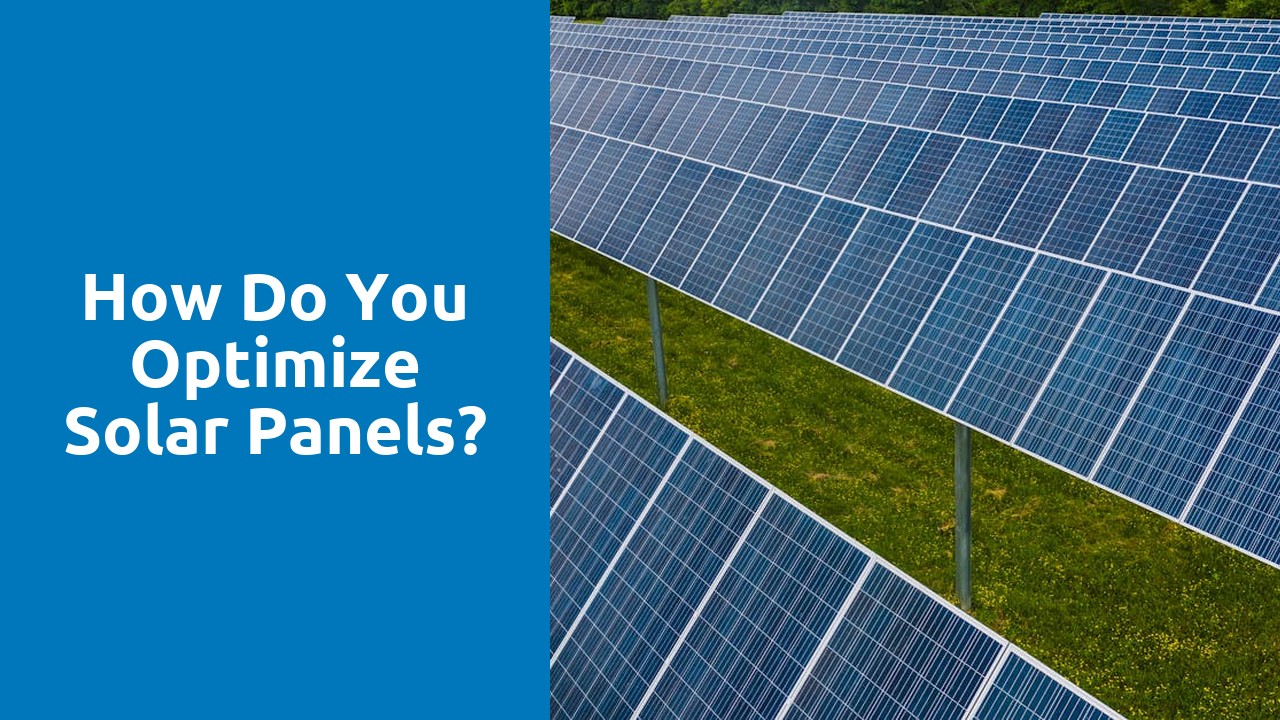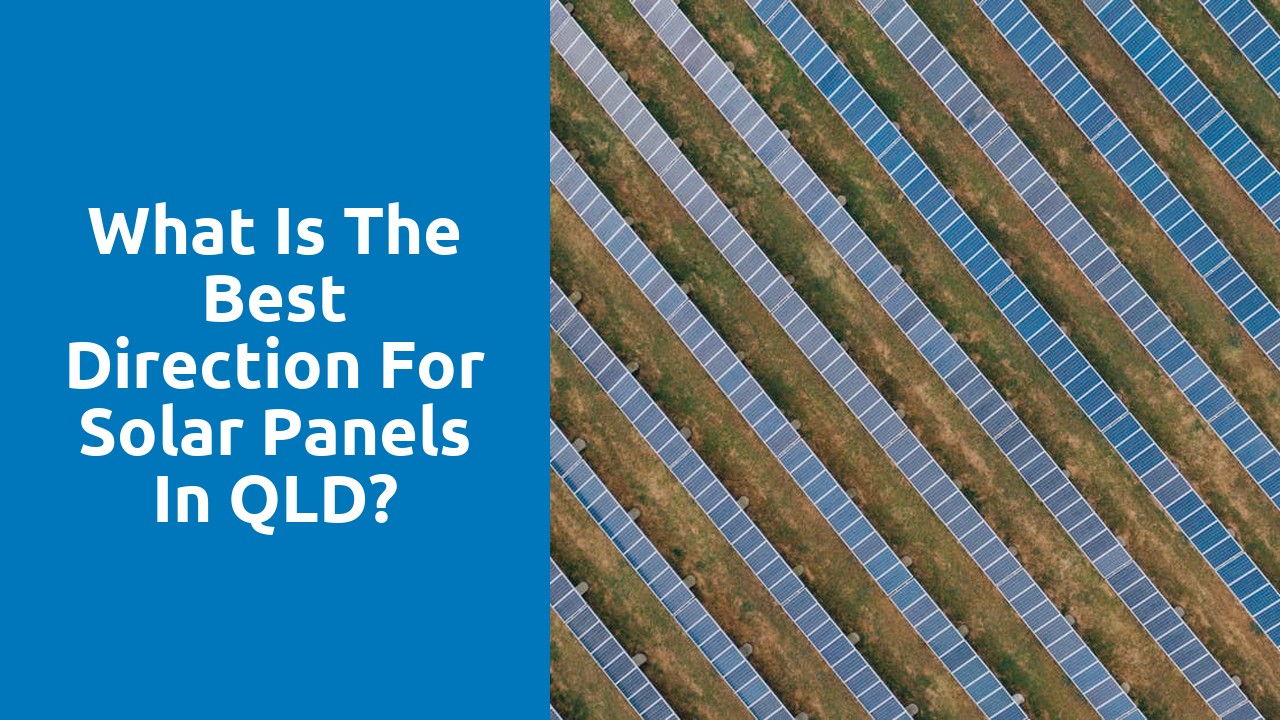
Integrating Energy Storage Solutions
Integrating energy storage solutions plays a crucial role in maximizing the efficiency of solar panel systems. By adding batteries to store excess solar power, homeowners can ensure a continuous energy supply even during periods of low sunlight. This not only increases self-consumption but also contributes to reducing reliance on the grid, ultimately leading to significant cost savings in the long run. The seamless integration of energy storage solutions is a key aspect of solar panel system optimization, allowing for better overall performance and reliability.
Investing in high-quality inverters is another essential component of solar panel system optimization. Inverters are key to transforming the direct current (DC) generated by solar panels into usable alternating current (AC) electricity for household appliances. Choosing inverters that are efficient and reliable can significantly impact the overall performance of the solar panel system. By selecting top-tier inverters, homeowners can enhance energy production and ensure maximum efficiency, further driving the benefits of solar panel system optimization.
Benefits of Adding Batteries to Store Excess Solar Power
Adding batteries to store excess solar power is a crucial aspect of Solar Panel System Optimization. By incorporating batteries into the system, homeowners can store any surplus energy generated during peak sunlight hours. This stored energy can then be utilised during periods of low sunlight or at night, ensuring a more consistent and reliable power supply for the household.
Moreover, storing excess solar power in batteries allows homeowners to reduce their reliance on the grid, leading to potential cost savings over time. By harnessing and storing solar energy efficiently, households can become more self-sufficient and environmentally friendly. Additionally, with the advancements in battery technology, the cost of batteries has been decreasing, making it a more viable option for those looking to enhance the efficiency of their solar panel systems.
Investing in HighQuality Inverters
Investing in high-quality inverters is essential for achieving optimal solar panel system optimization. Inverters play a crucial role in converting the direct current (DC) generated by solar panels into usable alternating current (AC) that powers homes and businesses. By choosing inverters of superior quality, you can enhance the overall efficiency and performance of your solar energy system. High-quality inverters tend to have higher conversion efficiencies, which means more of the solar energy captured by your panels can be effectively utilized.
When considering inverters for your solar panel system optimization, it's important to focus on durability and reliability. Investing in inverters with a proven track record of longevity and minimal maintenance requirements can contribute to the long-term success of your solar energy system. Additionally, high-quality inverters often come with advanced monitoring capabilities that allow you to keep track of your system's performance and identify any issues promptly. By prioritizing the quality of your inverters, you can maximise the benefits of solar panel system optimization and ensure a more sustainable energy future.
How Inverters Impact the Efficiency of Solar Panel Systems
When it comes to Solar Panel System Optimization, the role of inverters cannot be overlooked. Inverters are crucial components that convert the direct current (DC) electricity generated by solar panels into alternating current (AC) electricity used in households. The efficiency of inverters directly impacts the overall performance of a solar panel system. High-quality inverters ensure that the electricity produced by the solar panels is maximized and effectively utilized within the home or exported to the grid.
Inefficient inverters can lead to energy losses and reduced system performance. It is essential to invest in inverters that are compatible with the size and capacity of the solar panel system to ensure optimal energy conversion. Additionally, regular maintenance and monitoring of inverters are necessary to detect any issues early on and prevent any disruptions in the energy production process. By understanding how inverters impact the efficiency of solar panel systems, homeowners can make informed decisions to enhance the performance and longevity of their solar energy systems.
Understanding Feedin Tariffs
Feed-in tariffs are a crucial aspect of Solar Panel System Optimization. These tariffs refer to the payments made to households or businesses for the electricity they generate and feed back into the grid. By understanding and taking advantage of feed-in tariffs, solar panel owners can maximize the financial benefits of their systems. Essentially, these tariffs allow you to sell any excess energy your solar panels generate but don't use to your electricity retailer.
The rates at which feed-in tariffs are paid can vary based on location and energy provider. It is essential for solar panel owners to research and compare the feed-in tariff rates offered by different retailers to ensure they are getting the best possible return on their investment. By actively engaging with feed-in tariffs, solar panel owners can not only offset their electricity costs but also potentially generate income by selling surplus energy back to the grid.
Maximizing Returns by Selling Excess Solar Energy to the Grid
Maximizing returns by selling excess solar energy to the grid is a crucial aspect of solar panel system optimization. By connecting your solar panel system to the grid, you can feed any surplus energy generated back into the grid, effectively becoming a small-scale electricity generator. This process allows you to earn credits or even payments from energy retailers for the electricity you contribute.
Selling excess solar energy to the grid not only helps offset your energy costs but also promotes sustainable energy practices. By participating in feed-in tariff schemes, you can contribute to a more environmentally friendly energy grid while also reaping financial benefits. Maximizing returns through this method is a strategic way to make your solar panel system work efficiently for you, turning your investment into valuable savings over time.
FAQS
How can I optimize my solar panels for maximum efficiency?
You can optimize your solar panels by integrating energy storage solutions, investing in high-quality inverters, and understanding feed-in tariffs.
What are the benefits of adding batteries to store excess solar power?
Adding batteries to store excess solar power allows you to use the energy when the sun is not shining, reducing reliance on the grid and increasing energy independence.
How do inverters impact the efficiency of solar panel systems?
High-quality inverters are essential for converting the direct current (DC) generated by solar panels into usable alternating current (AC) for your home, directly impacting the efficiency of your solar panel system.
What are feed-in tariffs and how can they help in optimizing solar panels?
Feed-in tariffs allow you to sell excess solar energy back to the grid, maximizing returns on your investment in solar panels and helping you optimize the financial benefits of your system.
How can I maximize returns by selling excess solar energy to the grid?
By understanding feed-in tariffs and taking advantage of programs that allow you to sell excess solar energy back to the grid, you can maximize returns on your investment in solar panels and further optimize the financial benefits of your system.
